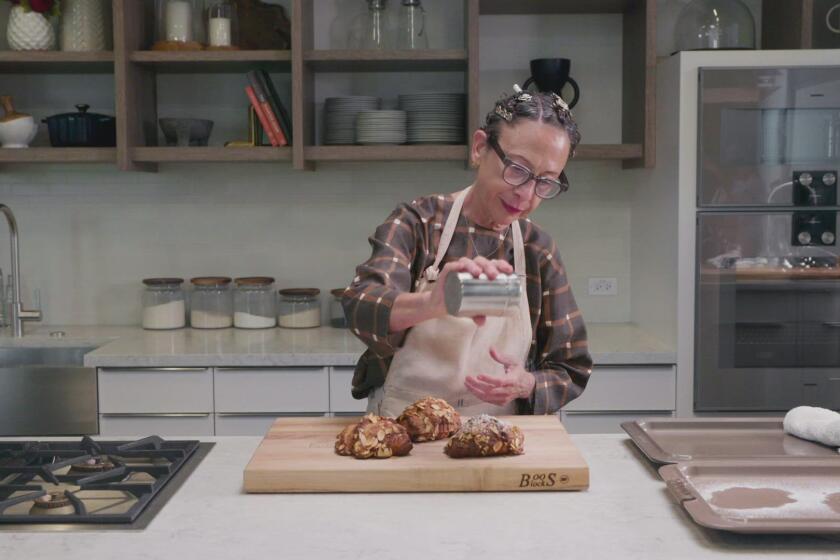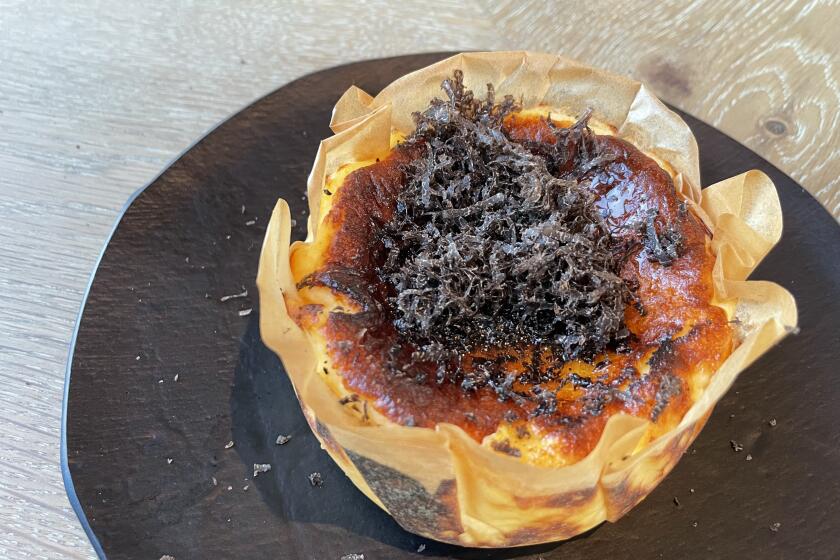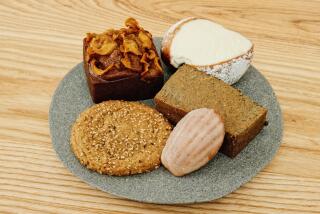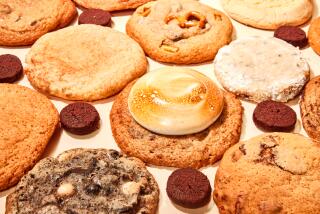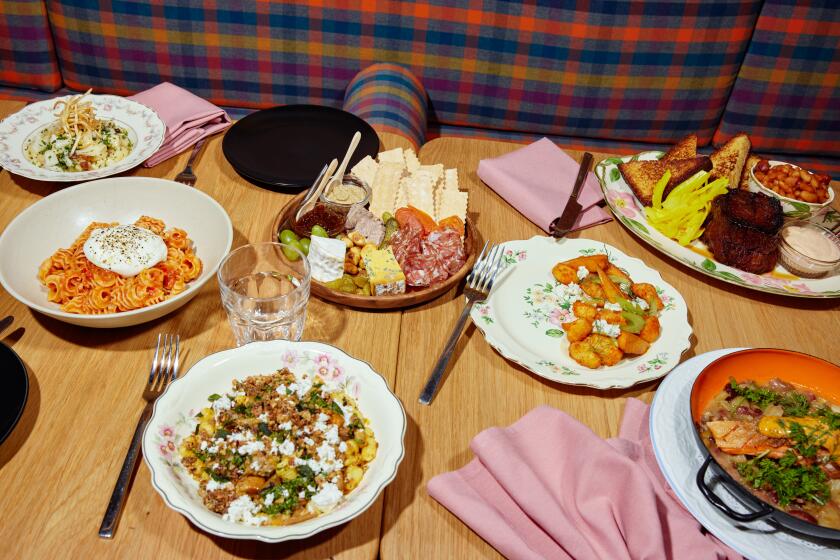The ‘flat croissant’ is a pastry abomination. I’m eating them anyway
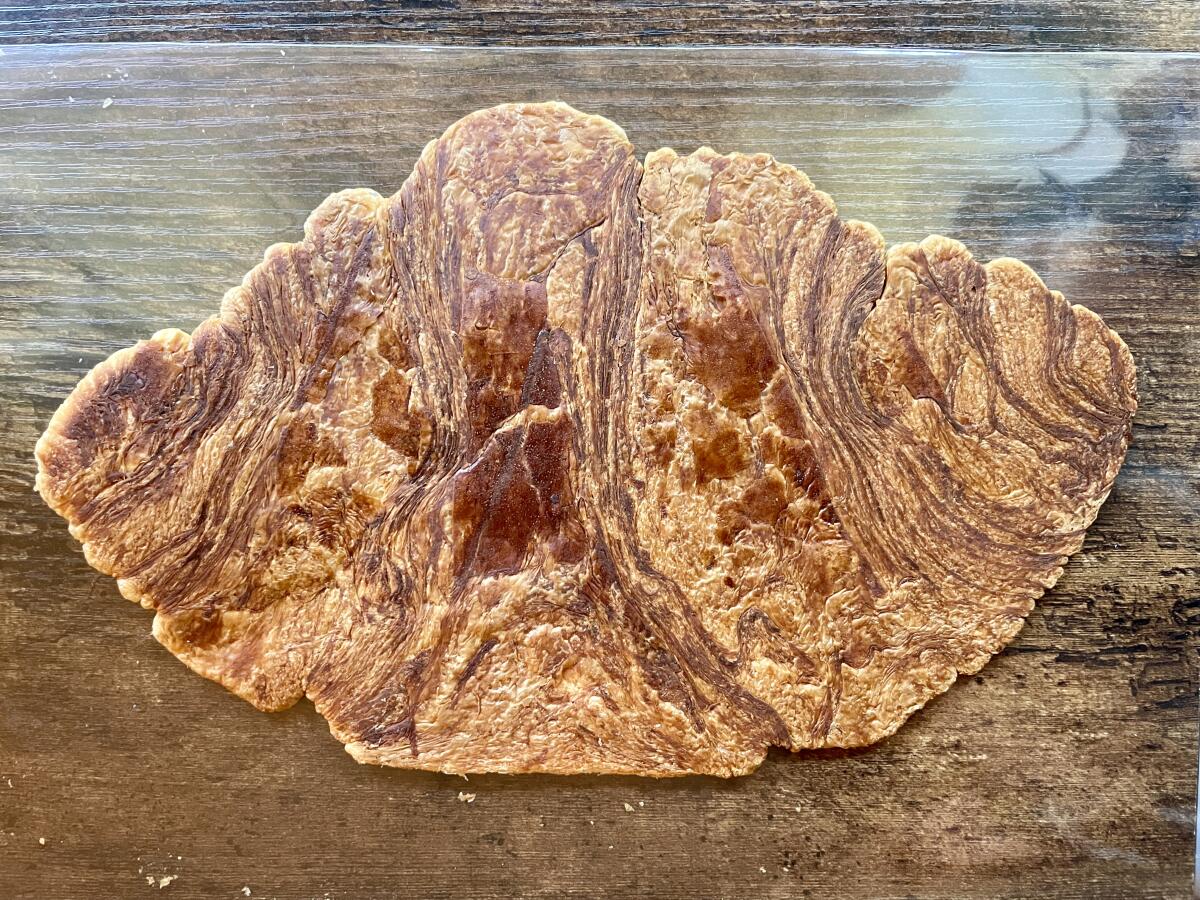
- Share via
I am a serious newspaper food columnist. I am not tempted by the next viral pastry trend. I will not spend money on something simply because it is larger or smaller than it should be, or a hybrid of two things I like.
Also me: I spent an hour in traffic to drive to a bakery in Koreatown because someone I follow on Instagram posted a video of a “flat” croissant.
The flat croissant looks like an optical illusion. A cartoon croissant squashed by a boulder. A magic trick or something out of a Harry Potter newspaper. Imagine reaching your hand into an Osias Beert or Pieter Claesz painting and plucking out one of the lifelike foods on the canvas.
From her bestseller cookbook “The Cookie That Changed My Life,” chef Nancy Silverton demonstrates two easy twice-baked pastries.
It’s about 1 millimeter thick and made by a machine that both presses and cooks the croissant. The flattened result yields a surface that brings to mind the beautiful sandstone striations of the Wave in Northern Arizona. It is a pastry abomination that subverts the very idea of a croissant, the prized contrast of delicate pastry shell and ultra fluffy center.
A TikTok search will yield videos with millions of views featuring flat croissants at various bakeries in Korea where the trend first took hold. According to Eater SF, you can also find flat croissants at a bakery in the Bay Area. I was first introduced to the pastry by Jae Hwa Yu, who goes by the name MissPiggieEats on social media. Yu recently posted a video of the croissant, called keu-loong-gi at Coin de Rue, a cheery bakery in the heart of Koreatown.
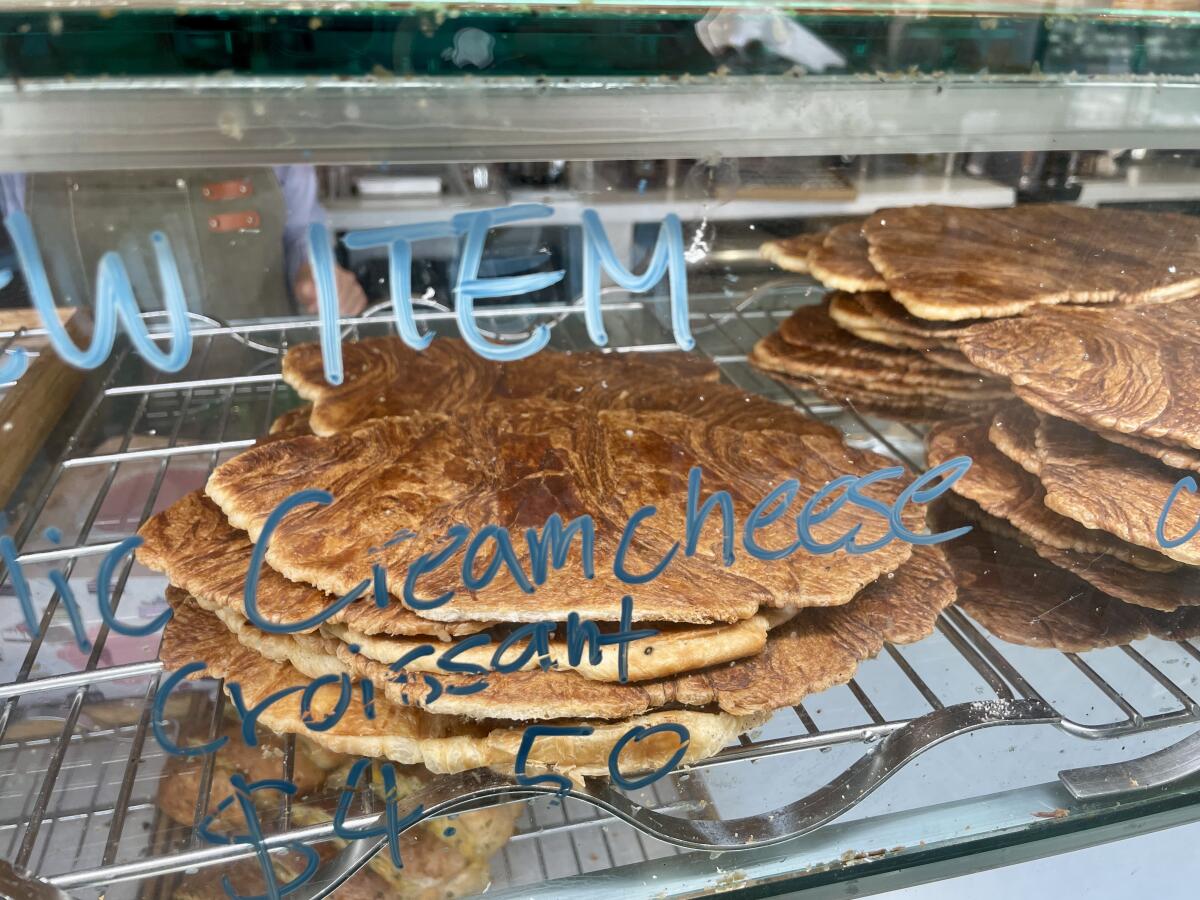
I expected the croissants to have their own display, or at least a presentation that matched the online fervor. On a recent visit, I found them stacked in the pastry case alongside some white bread and sugar doughnuts.
The woman behind the counter used a pair of tongs to carefully remove one of the croissants ($3) and place it in its own plastic sleeve. She also gave me a small container of whipped cream for dipping.
“Oh no!” she exclaimed. A small corner broke off when she placed the croissant on the counter. “I broke it. I’ll get you another one.”
Like a 3-D croissant, the 2-D version smells buttery. The crust is brittle but not so delicate that it shatters. The entire thing tastes like that one crisp shard you peel off the top of a good croissant.
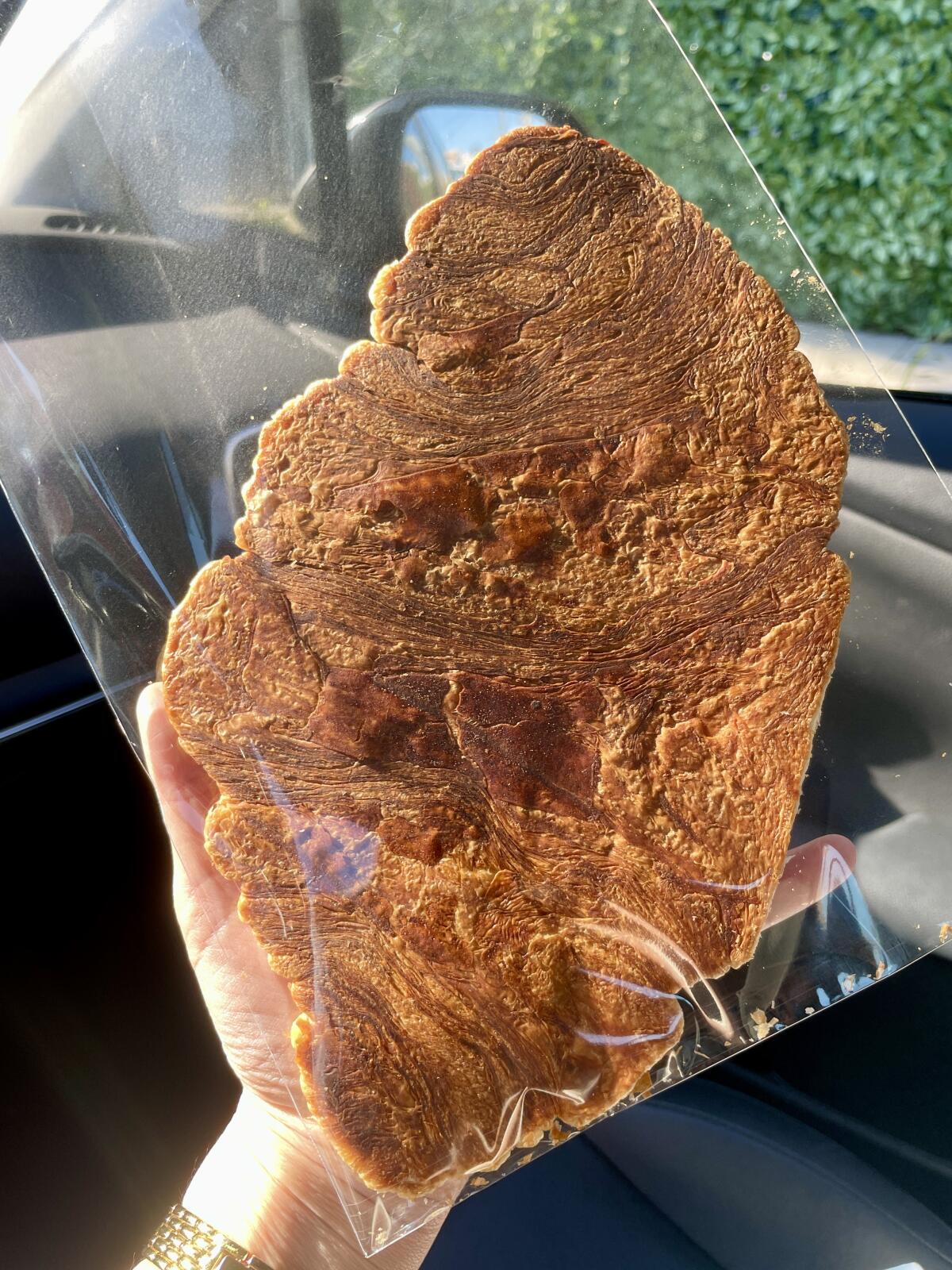
Pastry chef Rachel Lee said she makes the croissants with a special press her father, owner Hyo Sang Lee, bought from Korea. The unproofed croissant dough is sprinkled with rock sugar and then both cooked through and smashed in the press. The croissants never see the inside of an oven.
Though Lee uses a hot press, I found multiple other flat croissant cooking methods online. Some bakeries flatten the raw croissant dough then bake the croissants under a heavy sheet pan to hold the shape. I also watched countless videos of people making their own versions at home, smashing baked croissants with a rolling pin then toasting both sides in a hot pan.
But none seemed as flat as Lee’s. At most, you can see two layers. All the lamination in the dough is compacted beyond the scope of the naked eye. And when you bite it, it’s as crunchy as a cracker.
“Our customers are already into popular croissants so my dad thought why not try a different texture instead of being cream-filled or something like that,” she said. “And he wanted to do something that wasn’t already familiar around L.A.”
While the bakery has been open for three years, Lee said they just introduced the croissants about six months ago.
“I’ll see people contemplating the 3-D versus the 2-D, but a lot of people get both,” Lee said.
This week’s recommendations from Jenn Harris include a $74 dessert, dosa onion rings and Malai rigatoni.
I cracked the croissant into large tiles, then dipped them in the whipped cream. One end was thicker than the other by maybe half a millimeter, allowing for the tiniest bit of chew to remain.
The more I ate, the more I thought the word “abomination” was too severe an assessment. What if I looked at the flat croissant as the best part of a croissant, maximized? Like a muffin top. The bottom of a chocolate-filled ice cream cone. The crunchy edge of a pan of brownies. The first three seconds of a bite of kouign-amann.
Unless you like the middle part best. Then you should just buy a croissant.
Where to try the flat croissant
Coin de Rue, 1110 S. Western Ave. #101, Los Angeles, (323) 840-3971, www.instagram.com/thecoinderue
More to Read
Eat your way across L.A.
Get our weekly Tasting Notes newsletter for reviews, news and more.
You may occasionally receive promotional content from the Los Angeles Times.
